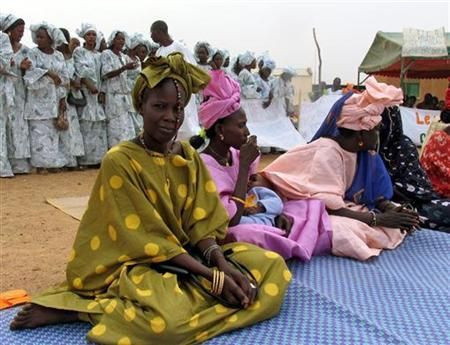UN Condemns Female Genital Mutilation

The United Nations General Assembly has passed a resolution calling on countries that still engage in female genital mutilation to eliminate the practice.
The measure was approved Thursday among five resolutions condemning harmful practices against women, a month after the first draft was introduced, which was hailed as a major step forward in protecting the approximately 140 million women and girls living with the consequences of being genital mutilation.
FGM involves partial or total removal of the clitoris and labia minora and majora, under the notion that girls and women are more "clean" and "feminine" when they have "unclean" parts cut away. There is no religious doctrine or basis for the practice, but it is a deep-rooted tradition in some cultures, chiefly in Africa. FGM can have serious health consequences, including recurrent infections, infertility, and neonatal death. Another FGM procedure involves stitching together the opening of the vagina, which must then be reopened for sexual intercourse and childbirth, causing further trauma to the area.
"This practice, justified on false pretenses by supposed cultural and religious tenents, remains a taboo subject, misunderstood and misinterpreted in several societies," said the ambassador from Burkina Faso in West Africa at a news conference following the resolution's passing. "It is time to break the silence that has surrounded FGM ... and move toward its elimination."
The practice is nearly universal in Somalia, Sudan, Egypt and Mali, among other countries.
U.N. Secretary General Ban Ki-Moon said in a statement on Friday that the five resolutions passed "represent important steps toward a world free from violence for all."
"The resolutions…urge countries to condemn all harmful practices that affect women and girls…and take all necessary measures, including enforcing legislations, awareness-raising, and allocating sufficient resources to protect women and girls from this form of violence," the statement said.
The resolutions were sponsored by two-thirds of U.N. member states, including the Group of African States. The World Health Organization estimates that 92 million girls in Africa age 10 and over have undergone an FGM procedure. The practice is also common among migrants in the Middle East and some countries in Asia.
© Copyright IBTimes 2025. All rights reserved.





















